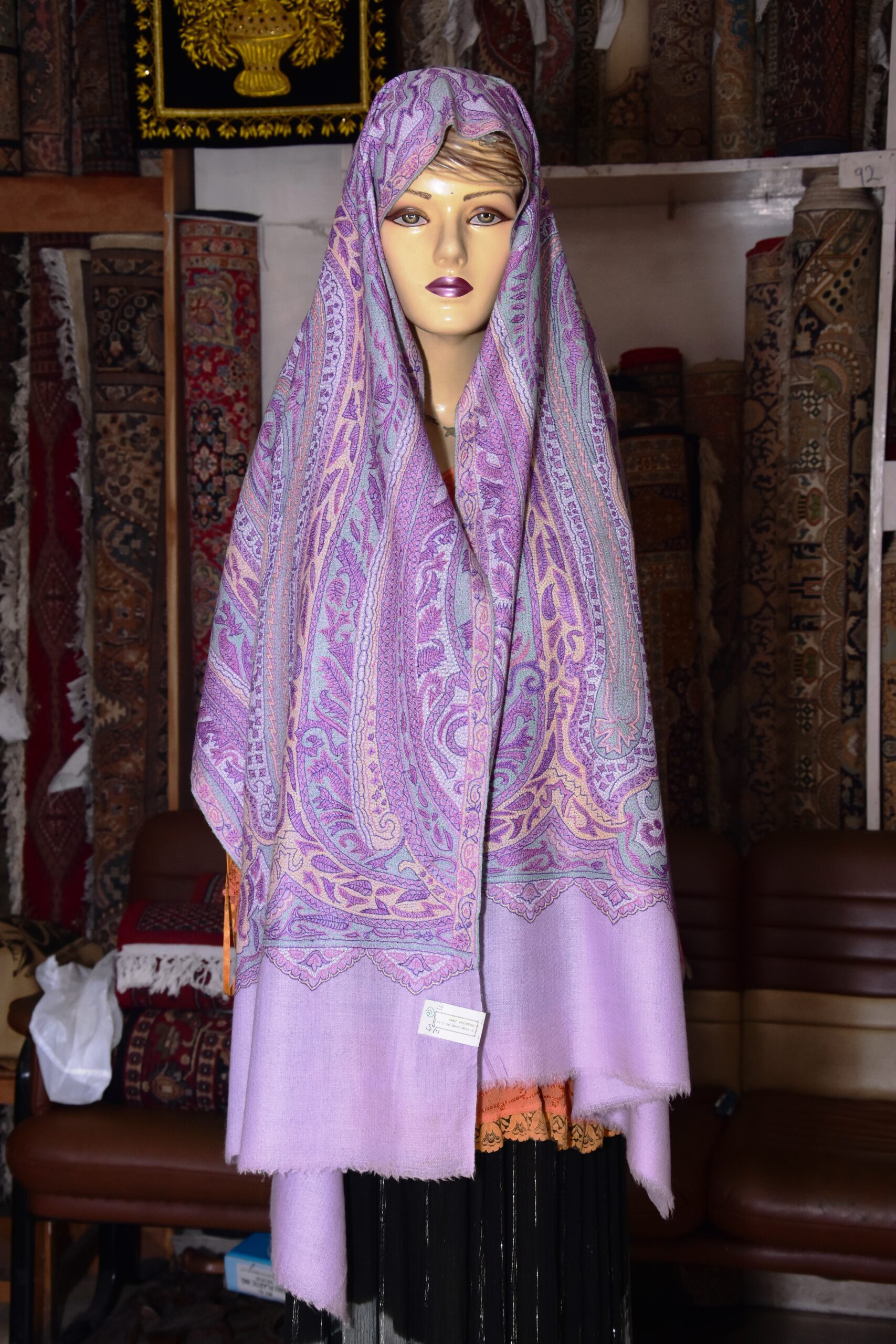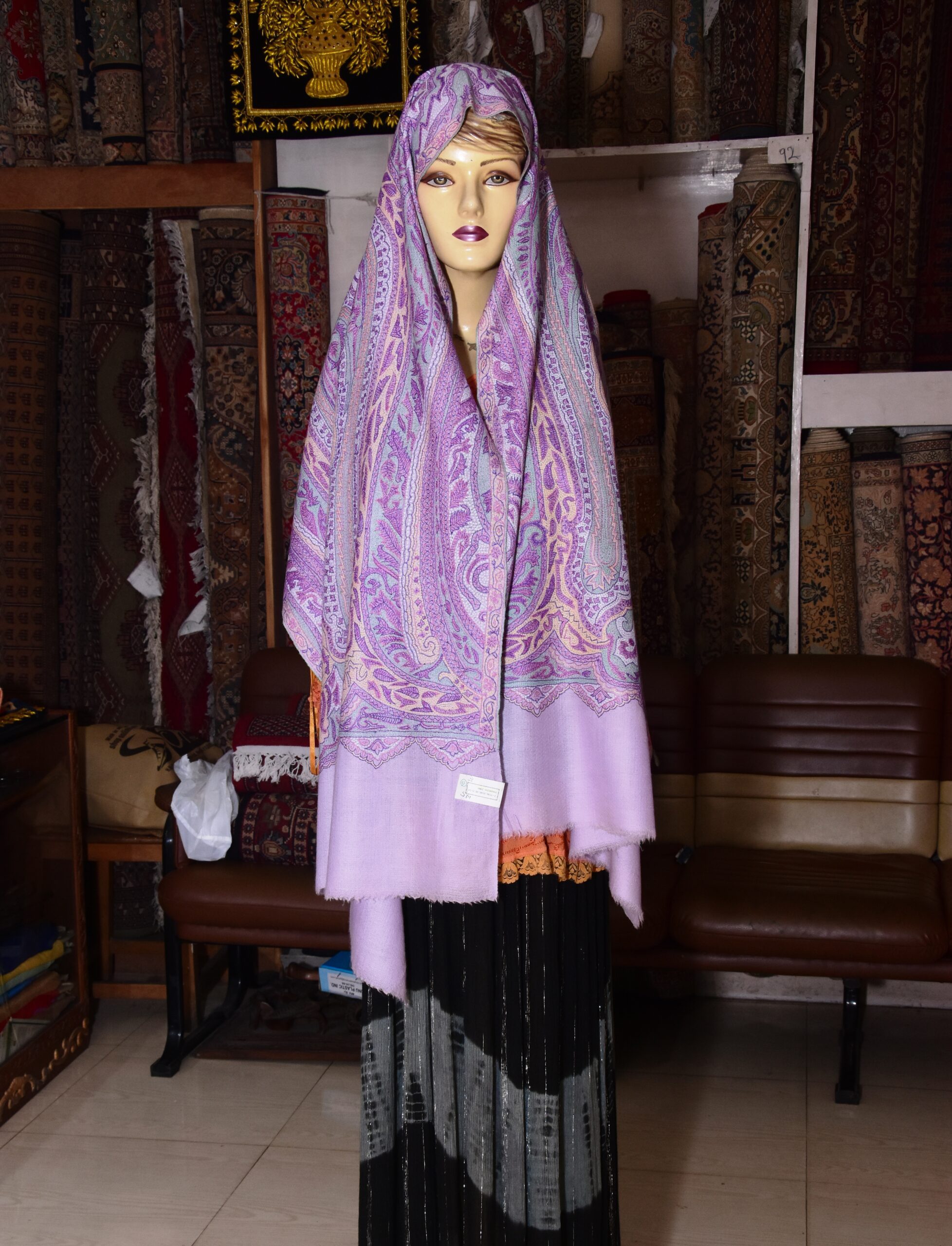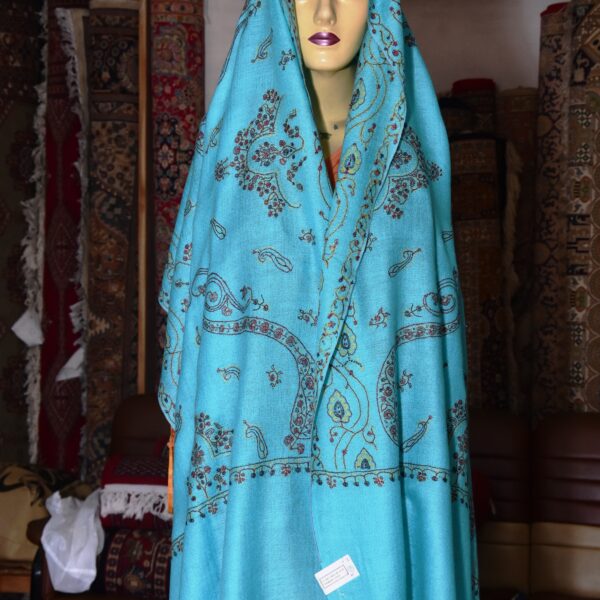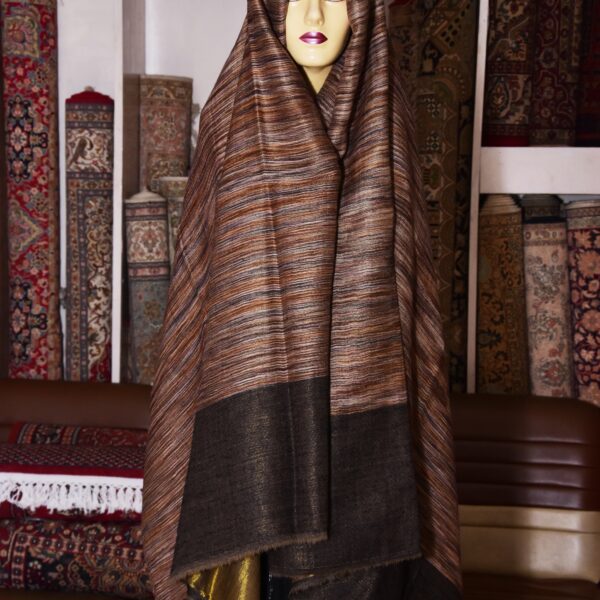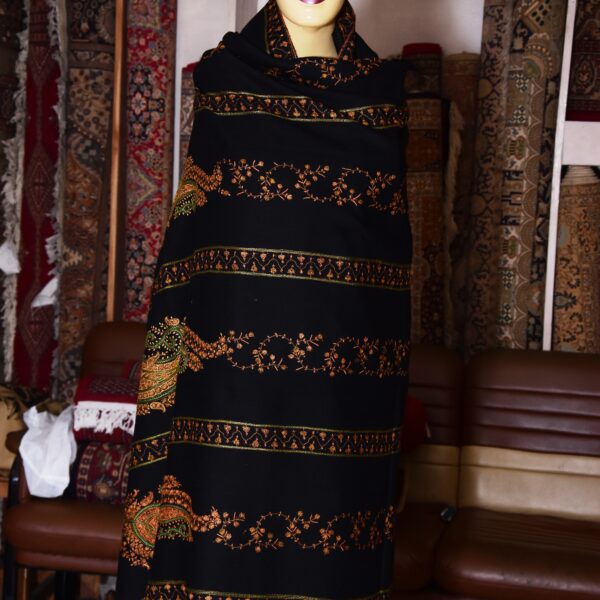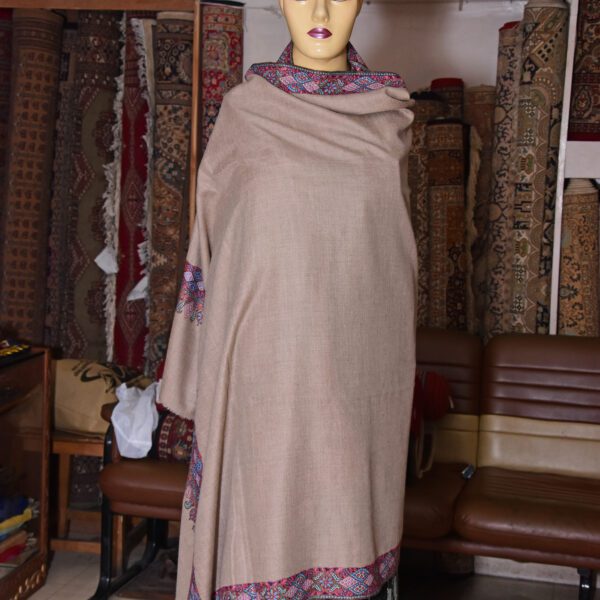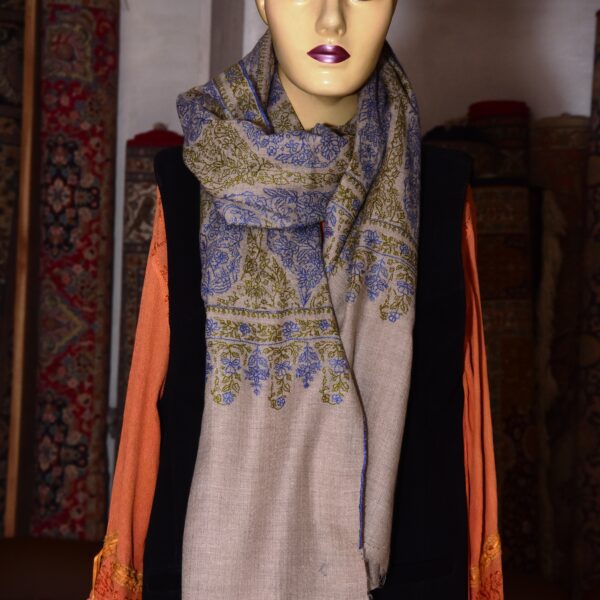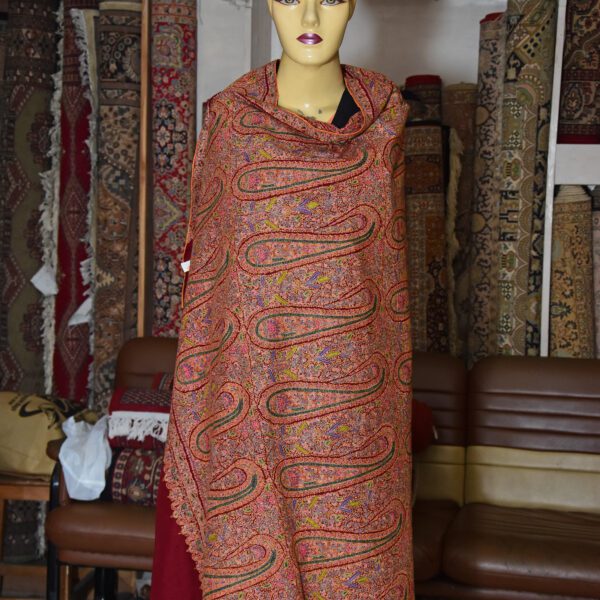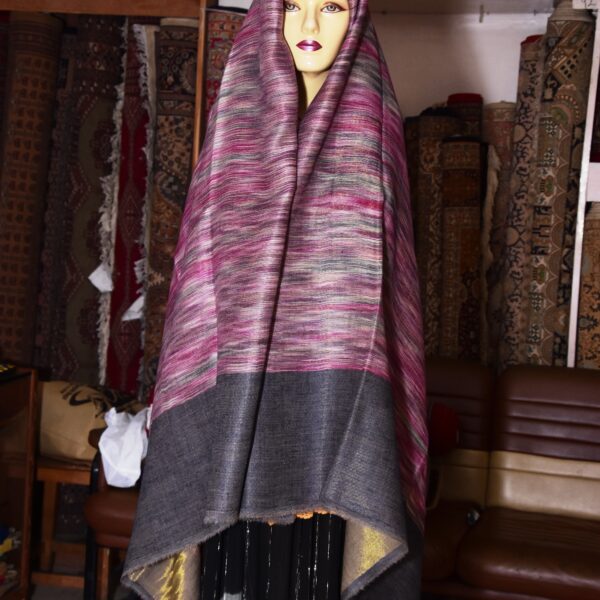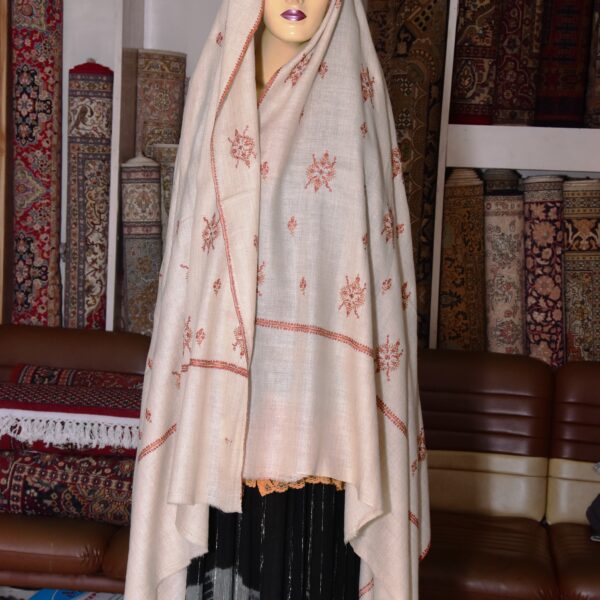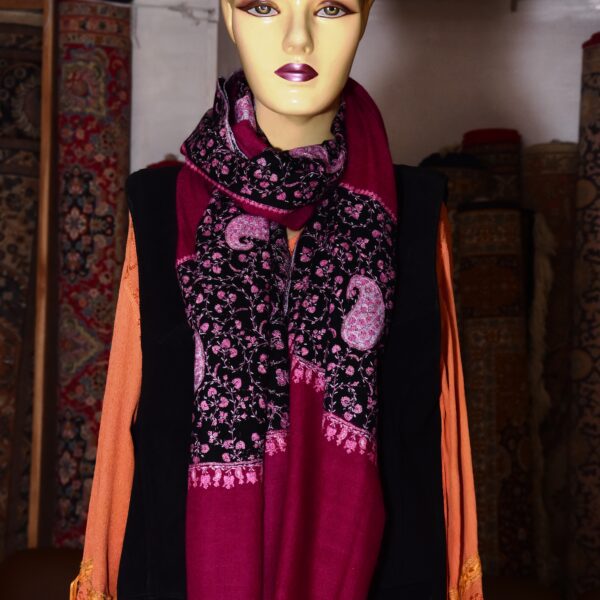Details
The making of a Pashmina shawl involves a meticulous process that has been passed down through generations in the Kashmir region of India and parts of Nepal. Pashmina wool, also known as cashmere, is derived from the soft underbelly of the Capra hircus goat, which thrives in the harsh climate of the Himalayan region. Here is an overview of the traditional process of making a Pashmina shawl:
1. Shearing:
The process begins with the careful shearing of the Capra hircus goats during the spring molting season. Only the soft underbelly wool, known as Pashm, is collected.
2. Sorting and Cleaning:
The collected wool is then sorted to separate the coarse outer fibers from the fine Pashm. This delicate fiber is thoroughly cleaned to remove any impurities or natural oils.
3. Carding:
The cleaned Pashm is carded to align the fibers and create a uniform texture. Carding involves combing the wool into a thin and consistent form suitable for spinning.
4. Spinning:
The carded wool is spun into yarn by skilled artisans using a spinning wheel or, in more modern processes, mechanical spinning machines. The yarn created is incredibly fine, and the spinning process requires precision to maintain the quality of the fibers.
5. Weaving:
The spun Pashmina yarn is then woven into fabric using traditional hand looms. The weaving process is intricate and time-consuming, as weavers carefully create the desired patterns and designs. Pashmina shawls are often woven with traditional Kashmiri patterns, including paisleys, floral motifs, and geometric designs.
6. Dyeing:
If color is desired, the woven fabric is then dyed using natural or synthetic dyes. Traditional Pashmina shawls often feature natural, earthy tones, but modern variations may include a wide range of colors to suit contemporary fashion preferences.
7. Embroidery (Optional):
Some Pashmina shawls undergo additional embellishment through intricate hand embroidery. Skilled artisans may add delicate embroidery patterns to enhance the aesthetic appeal of the shawl.
8. Finishing Touches:
The finished fabric is carefully examined for any imperfections. Any loose threads or irregularities are corrected, and the shawl may undergo processes such as washing and pressing to achieve its final texture and appearance.
9. Quality Control:
Pashmina shawls are subjected to stringent quality control measures to ensure that they meet the high standards associated with this luxurious fabric. Inspections cover aspects like color, texture, pattern, and overall craftsmanship.
10. Packaging:
Once the shawl passes quality control, it is carefully folded and packaged for distribution.
The traditional craftsmanship involved in making Pashmina shawls reflects the rich cultural heritage of the Kashmir region. The labor-intensive nature of the process, coupled with the scarcity of the fine Pashmina fibers, contributes to the exclusivity and value of these luxurious accessories.


